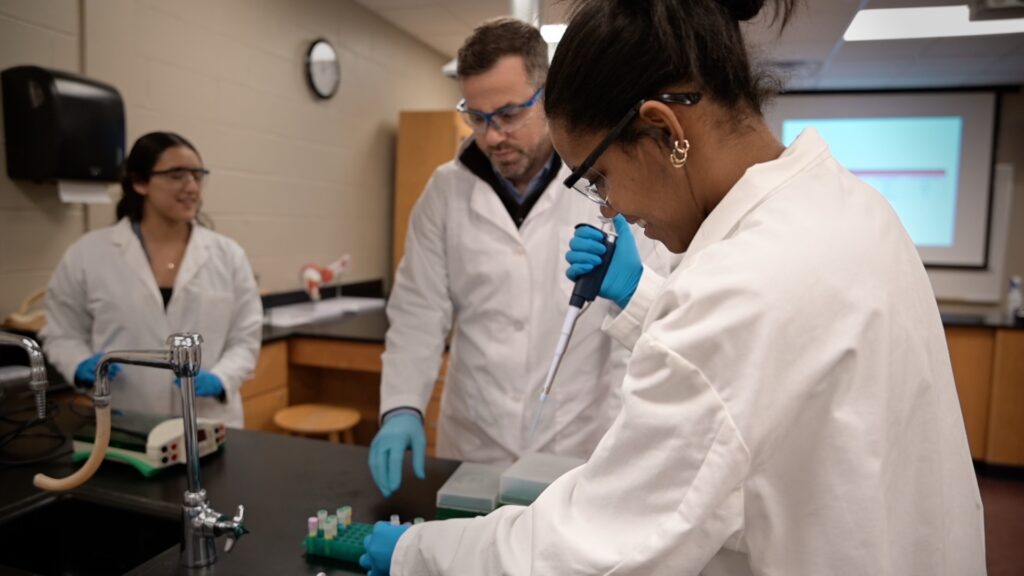It can be difficult to choose a major when you don’t know what career you want to pursue. But you’re not alone! Many freshmen enter college undeclared and even those who think they know what they want to study end up changing their minds. While you don’t have to officially declare your major until you’re a junior at most colleges, many students unofficially choose a major in order to get a head start on the course requirements for their major. If you’re not sure what you want to do after college, but still want to choose a major, consider the following:
1. Psychology
If you’re interested in the human mind and human behavior, you may want to major in psychology. As a psychology major, you’ll develop both quantitative and qualitative skills. You’ll learn how to research and analyze data, as well as develop interpersonal, critical thinking, and writing skills.
Many psychology majors find careers as…
- Social workers
- Mental health counselors
- Human resource generalists
- Research assistants
- Caseworkers
2. Liberal Arts/Interdisciplinary Studies
If you have no idea what you want to do after graduation, a liberal arts or interdisciplinary studies major may be right for you. In these types of majors, there tends to be a lot more flexibility in your choice of classes, and you can take classes on race, gender, sexuality, foreign language, culture, and more.
While there is an ongoing argument that the liberal arts don’t prepare students for the workforce, liberal arts majors develop interpersonal, research, communication, analytic reasoning, and critical thinking skills. Liberal arts majors can pursue further studies or get trained on the job to become…
- Lobbyists
- Economists
- Museum managers
- Salespersons
- Teachers
3. Digital Media and Communication
Communications is another broad field, and as a communications major, you can choose from a number of different careers. You can choose a specific focus in communications:
- Journalism, media, and broadcasting
- Public relations
- Marketing and advertising
- Business and industrial relations
- Government and politics
By majoring in digital media and communications, you’ll learn how to communicate effectively in order to form business relationships, plan campaigns, change policy, promote events, write news articles and press releases, and report on major issues on broadcast television. Understanding multimedia communications in a digital age will give you an edge in the job search and will help you adapt to many different work environments. Communications majors develop skills in public speaking, writing, interpreting, and problem-solving which are skills necessary for every field.
Digital Media and Communications majors may go on to become…
- Digital Journalists
- Graphic Designers
- Editors
- Web Developers
- News Analysts
4. Business
If you’re not sure what you want to do after college, but want to gain practical skills for the workplace, major in business. There are a ton of career options for business majors! Whether you end up working in higher education, a nonprofit, or even venture out as an entrepreneur, every organization functions as a business and requires people who are business-minded for their daily operations to run smoothly.
With a degree in business, you may pursue a career as a…
- Financial analyst
- Benefits and compensation manager
- Real estate agent
- Business operations specialist
- Sales manager
5. English
There are many people who rag on English majors, but a degree in English prepares you for a variety of contexts. You’ll learn how to think critically, analyze texts, and write clearly. Critical thinking skills and the ability to write well are skills that you can take with you to any job in any industry.
Many English majors go on to become…
- Editors
- Copywriters
- Teachers
- Marketing associates
- Lawyers
6. Biology
A biology degree isn’t just for future doctors. If you liked biology in high school, consider majoring in biology in college. You’ll study living organisms and the environment, test hypotheses, interpret scientific data, and synthesize research into lab reports. Biology majors, like many liberal arts majors, learn how to think critically and analyze their research.
With a biology degree, you can work as a…
- Conservation scientist
- Occupational therapist
- Forensic scientist
- Cellular biologist
- Disease researcher
7. Computer Science
There is an ever-increasing need for people with computer science degrees. If you’re not sure what you want to do after college, but want to make sure that you’ll find a job, computer science is one of the best degrees out there in terms of employment rates according to The Bureau of Labor Statistics. Check out our article on the security of computer technology jobs in the midst of uncertainty.
Computer science majors also have a variety of opportunities as they work in scientific and technical fields, as well as in education, business, healthcare, and more.
Many computer science majors go on to become…
- Software developers
- Business intelligence analysts
- IT and support staff members
- Web developers
- Network systems administrators
Find the Value of a College Degree at Cairn University
Choosing your major can be difficult, but it’s not the end of the world if you don’t know what you want to do after graduation. Take classes that sound interesting, find an internship or part-time job, and talk to professors to get a better idea of what you would like to do in the future and what you should major in.
At Cairn University, our professors are involved in student life and in helping students realize their passions. We exist to educate students to serve Christ in the church, society, and the world as biblically minded, well-educated, and professionally competent men and women of character.
Come see how we educate students to serve the Lord in every academic program.
To learn more, request more information. Or, you can schedule a visit to campus. Ready to start your time at Cairn today? Apply now!





